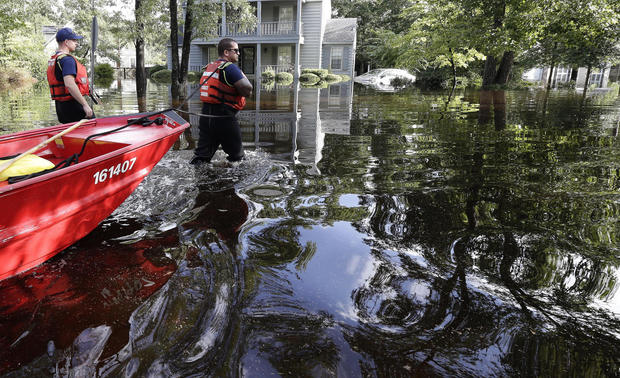The Aftermath of Hurricane Florence
Member from the U.S. coastguard were in Lumberton, North Carolina to check on the flooded neighborhood
October 5, 2018
Over a week has passed since hurricane Florence hit North Carolina on Sept. 14.
Since then it has become one of the top ten most costly hurricanes to hit the United States. So far the death toll due to this storm has reached 43 people. The estimated damage is currently in the range of $50 billion.
Across the state of North Carolina, over 400 roads are still blocked. However, they reopened a section of I-95 last Sunday. It is still expected for parts of Interstate 95 and 40 to be underwater for a least another week, possibly longer. In the Wilmington area alone there were 30-40 inches of rainfall.
The thousands of residents that have utilities that rely on coal-fired power still do not have electricity; however, their solar installations were up and running the day following the storm. The issue is that solar installations are only responsible for powering less than 5% of North Carolina.
There was a dam breach at a coal fired power plant that was no longer in use, which caused coal ash to flow into a nearby river near Wilmington, North Carolina. If something like this were to happen in Colorado thousands of people would be affected because we depend on rivers for the majority of our water.
Storm watchers are now on the lookout for two new tropical systems that are believed to have been caused because of hurricane Florence’s remnant energy and moisture. The good news is that they currently are no threat to the land despite their unsettling nature.
In the past four days the Baptist Church Activities Center alone served more than 40,000 meals to those affected by this storm.
Chaos continues for the residents in Wilmington, as one woman said, “People are trying to kill each other.”
The distribution centers and most of the residents are trying to help the current situation as best as possible. They are “going to ask everybody to step up,” said North Carolina Governor Roy Cooper, as the state begins to rebuild homes, businesses, and roads.


